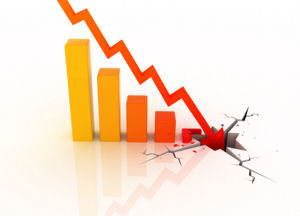| Chief Information Officer (CIO) Network | |||
This article is another relating to a discussion on LinkedIn.com. As with my earlier piece, Short-term “Trouble for Big Business Intelligence Vendors” may lead to longer-term advantage, this was posted on the Chief Information Officer (CIO) Network group
The thread was initiated by Patrick Gray and was entitled: Is IT partially to blame for the financial crisis? (as ever you need to be a member of LinkedIn.com and the group to view this).

Patrick asked:
Information is one of the key components of any IT organization (I would personally argue it’s more important than the technology aspect). Two facts disturb me when one looks at IT’s role in the financial crisis:
1) We in IT have been pushing data warehouse and business intelligence technology for years, saying these technologies should allow for “proactive” decision making at all levels of an organization, and an ability to spot trends and changes in a business’ underlying financial health.
2) The finance industry is usually spends more on IT than any other industry.
This being the case, if BI actually does what we’ve pitched it to do, …
| Chief Information Officer (CIO) Network | |||
This article is another relating to a discussion on LinkedIn.com. As with my earlier piece, Short-term “Trouble for Big Business Intelligence Vendors” may lead to longer-term advantage, this was posted on the Chief Information Officer (CIO) Network group
The thread was initiated by Patrick Gray and was entitled: Is IT partially to blame for the financial crisis? (as ever you need to be a member of LinkedIn.com and the group to view this).

Patrick asked:
Information is one of the key components of any IT organization (I would personally argue it’s more important than the technology aspect). Two facts disturb me when one looks at IT’s role in the financial crisis:
1) We in IT have been pushing data warehouse and business intelligence technology for years, saying these technologies should allow for “proactive” decision making at all levels of an organization, and an ability to spot trends and changes in a business’ underlying financial health.
2) The finance industry is usually spends more on IT than any other industry.
This being the case, if BI actually does what we’ve pitched it to do, shouldn’t one of these fancy analytical tools spotted the underlying roots of the financial crisis in at least one major bank? Is IT partially culpable for either not looking at the right data, or selling a bill of goods in terms of the “intelligence” aspect of BI?
I have written elsewhere on LinkedIn.com about business intelligence’s role in the financial crisis. My general take is that if the people who were committing organisations to collateralised debt obligations and other even more esoteric assent-backed securities were unable (or unwilling) to understand precisely the nature of the exposure that they were taking on, then how could this be reflected in BI systems. Good BI systems reflect business realities and risk is one of those realities. However if risk is as ill-understood as it appears to have been in many financial organisations, then it is difficult to see how BI (or indeed it’s sister area of business analytics) could have shed light where the layers of cobwebs were so dense.
So far, so orthodox, but Patrick’s question got me thinking along a different line, one that is more closely related to the ideas that I propounded in Business is from Mars and IT is from Venus last year. I started wondering, ‘is it just too easy for IT to say, “the business people did not understand the risks, so how were we expected to?”?’ (I think I have that punctuation right, but would welcome corrections from any experts reading this). This rather amorphous feeling was given some substance when I read some of the other responses.
However, I don’t want to focus too much on any one comment. My approach will be instead to take a more personal angle and describe some of the thoughts that the comments provoked in me (I am using “provoked” here in a positive sense, maybe “inspired” would have been a better choice of word). If you want to read my comments with the full context, then please click on the link above. What I am going to do here is to present some excerpts from each of my two lengthier contributions. The first of these is as follows (please note that I have also corrected a couple of typos and grammatical infelicities):
Rather than being defensive, and as a BI professional I would probably have every right to be so, I think that Patrick has at least half a point. If some organisations had avoided problems (or mitigated their impact) through the use of good BI (note the adjective) in the current climate, then BI people (me included) would rush to say how much we had contributed. I have certainly done this when the BI systems that I have implemented helped an organisation to swing from record losses to record profits.
Well if we are happy to do this, then we have to take some responsibility when things don’t go so well. It worries me when IT people say that non-IT managers are accountable for the business and IT is just accountable for IT. Surely in a well-functioning organisation, IT is one department that shares responsibility for business success with all the other front-line and service departments.
I have seen it argued with respect to failed financial institutions that IT can only provide information and that other executives take decisions. Well if this is the case, then I question how well the information has been designed to meet business needs and to drive decisions. To me this is evidence of bad BI (note the adjective again).
There are some specific mitigating factors for IT within the current climate, including poor internal (non-IT) governance and the fact that even the people who were writing some financial instruments did not understand the potential liabilities that the we taking on. If this is the case, then how can such risk be rolled up meaningfully? However these factors do not fully exculpate IT in my opinion. I am not suggesting for a second that IT take prime responsibility, but to claim no responsibility whatsoever is invidious.
So yes either poor information, or a lack of information (both of which are IT’s fault – as well as that of non-IT business folk) are a contributory factors to the current problems.
Also, while IT managers see themselves as responsible only for some collateral department, semi-detached from the rest of the business, we will see poor IT and poor information continuing to contribute to business failure.
This is the second passage:
[…]
I just wonder how it is that IT people at such firms can say that any failures are 100% nothing to do with them, as opposed to say 1% responsibility, or something of that nature.
Part of the role of professionals working in BI is to change the organisation so that numerical decision making (backed up of course by many other things, including experience and judgement) becomes part of the DNA. We are to blame for this not being the case in many organisations and can’t simply throw our hands up and say “wasn’t me”.
[…]
I will freely admit that there was a large dose of Devil’s Advocate in my two responses. As I have stated at the beginning of this piece, I am not so masochistic to believe that IT caused the current financial crisis, however I do not think that IT can be fully absolved of all blame.
My concerns about IT’s role relate to the situation that I see in some companies where IT is a department set apart, rather than being a central part of the overall business. In this type of circumstance (which is perhaps more common than anyone would like to think), the success of the IT and the non-IT parts of the business are decoupled.
Under these arrangements, it would be feasible for IT to be successful and the business to suffer major losses, or for the business to post record profits while IT fails to deliver projects. Of couse such decoupling can happen in other areas; for example Product A could have a stellar year, while Product B fails miserably – the same could happen with countries or regions. However there is something else here, a sense that IT can sometimes be an organisation within an organisation, in a way that other service departments generally are not.
Rather than expanding further on this concept here, I recommend you read Jim Anderson’s excellent article Here’s What’s Really Wrong With IT And How To Fix It on his blog, The Business of IT. I think that there is a good deal of alignment between Jim and I on this issue; indeed I was very encouraged to find his blog and see that his views were not a million miles from my own.
I would also like to thank Patrick for posting his initial question. It’s good when on-line forums lead you to take an alternative perspective on things.







